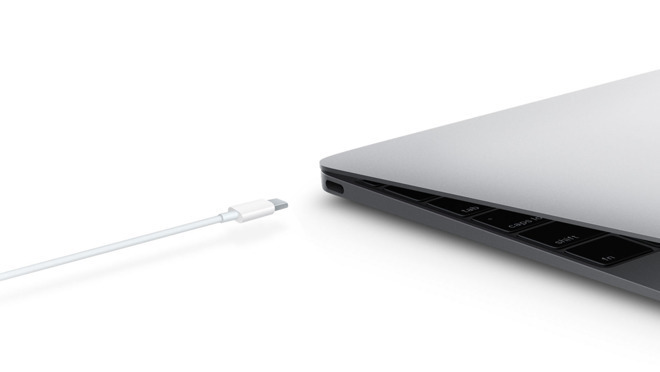USB 4, the next version of the connectivity protocol, is said by the USB Promoter Group to offer computer users a throughput of up to 40Gbps and other features of Thunderbolt 3, following the contribution of the Thunderbolt protocol specification to the group by Intel.
A future generation of USB, the USB Promoter Group revealed the release of the USB 4 specification is on the way, and would effectively offer all of the benefits of Thunderbolt 3. While the implementation of USB 4 by vendors may be a long time away from happening, the draft specification itself is expected to be published later in 2019.
The specification is largely expected to cover most, if not all, of what is currently capable under Thunderbolt 3, as chip producer Intel has contributed Thunderbolt 3 to the group. The provision will effectively make it easier for vendors to produce devices using the technology at a cheaper rate than at present, and possibly without any of the current confusion of USB and Thunderbolt 3 connectivity due to using the same USB Type-C connector.
The benefits of USB 4 will be largely consistent with Thunderbolt 3, including a throughput of up to 40Gbps, and may include elements such as power deliver of up to 100W, allowing notebooks to be charged over the same connection as driving 4K and 5K displays. The spec will offer backwards compatibility with earlier USB standards, including USB 3.2 and USB 2.0, as well as Thunderbolt 3 itself.
Intel has planned to offer Thunderbolt 3 as a royalty-free standard to manufactures for some time, with Monday's announcement being a culmination of that work.
"Releasing the Thunderbolt protocol specification is a significant milestone for making today's simplest and most versatile port available to everyone," said Jason Ziller, General Manager, Client Connectivity Division at Intel. "By collaborating with the USB Promoter Group, we're opening the doors for innovation across a wide range of devices and increasing compatibility to deliver better experiences to consumers."
While Apple is already an adopter of Thunderbolt 3, the change will help with the creation of more accessories that will work at the higher connection speeds and have support for the standard, in part due to it becoming more widely available. Indeed, Intel's integration of Thunderbolt 3 into future processors, including "Ice Lake" chips announced earlier this year, will help further that support.
USB 4 would follow after the impending availability of USB 3.2 Gen 2x2, which recently underwent a somewhat confusing name change. That specification will be an upgrade from USB 3.1, now known as USB 3.2 Gen 2, doubling the bandwidth from 10Gbps to 20Gbps.
 Malcolm Owen
Malcolm Owen







-m.jpg)






 Wesley Hilliard
Wesley Hilliard

 Andrew Orr
Andrew Orr
 William Gallagher
William Gallagher
 Sponsored Content
Sponsored Content
 Christine McKee
Christine McKee

 Thomas Sibilly
Thomas Sibilly







25 Comments
Good grief - the pace of development is quick. I still don't own a device with a USB connector or Thunderbolt 3 yet...
Interesting. I wonder if USB will be adopting the equal peer relationship, or fitting the Thunderbolt features into its master-slave model.
Good part is physical connector still USB Type-C and protocol backward compatibility to Thunderbolt 3, USB 3.x
Weird, I was just thinking about this last night. I was wondering if Thunderbolt would eventually just get added to the USB spec, or the tech would just be discontinued like FireWire, after I had a read a comment from someone on Reddit that thought Thunderbolt was a Mac only technology because so few PCs include it.